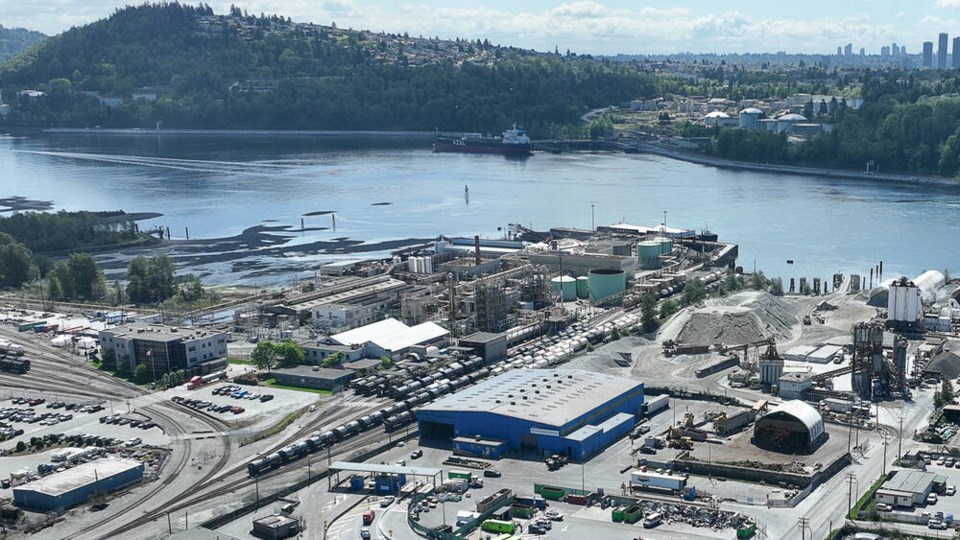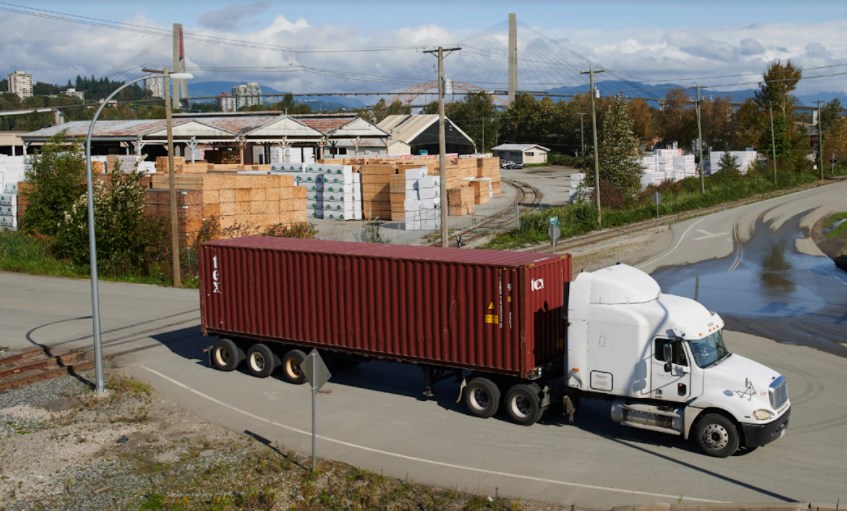Industrial lands in Metro Vancouver account for only four per cent of its land base, but bring in $43 billion — equivalent to roughly 30 per cent of the region’s gross domestic product, according to a new report.
Carried out by InterVistas Consulting Inc. on commission from the regional government, the report used custom Statistics Canada data from the 2021 census in order to understand how the region’s industrial lands are impacting employment and providing tax dollars.
Of the 280,120 hectares of land in Metro Vancouver, only 11,500 hectares are put aside for industrial use. Yet those lands directly support about 22 per cent of jobs across Metro Vancouver, while indirectly spinning off 513,700 jobs across the province and 584,100 jobs in Canada, the report found.
And when it comes to taxes, industrial lands were found to generate $8 billion in revenue every year: $250 million for municipal property taxes; $1.9 billion for the province; and $5.9 billion for the federal government.
Mike Hurley, chair of Metro Vancouver’s board of directors, said in a statement that “it’s essential we do more to protect what lands we have left.”
"This new research quantifies what many have long understood: industrial lands punch far above their weight in the economy," said Hurley.

'Integral' industrial lands getting squeezed
The report defines industrial lands as containing a combination of light and heavy manufacturing, warehousing, and emerging technology businesses. As key hubs in the region’s supply chain, the lands are “integral” to the flow of goods through the Port of Vancouver, Canada’s busiest, the report says.
Despite their importance, the lands are under threat — squeezed by a limited supply of land and struggling to grow under a complex regulatory environment, the report found.
“Companies may choose to relocate to other regions with more affordable and available industrial land, e.g., within the province, outside of Metro Vancouver or outside the provinces, such as Calgary,” the report says. “This can result in job losses and a decrease in local economic activity.”
At some point between 2035 and 2047, the total supply of industrial lands is projected to be completely absorbed, according to a recent Vancouver Board of Trade report cited in the study. InterVistas Consulting Inc. also produced that report.
“In the worst-case scenario, this unmet demand could lead to businesses ending their operations entirely,” that report warns.
“This is not just an issue of manufacturing, there are a number of sectors which need industrial lands, or supply goods and services for businesses that operate on them.”
Businesses could get pushed out of region
The cost of land and high lease rates are making it more expensive for businesses to operate in Metro Vancouver's industrial lands, according to the report. That has led to “very low vacancy rates” that make it difficult for new businesses to find a location, and in turn, has increased prices and operating expenses.
As the report's authors put it: “Metro Vancouver has faced a critical shortage of industrial lands for over a decade due to escalating land prices, low vacancy rates, and rising rental costs.”
Those pressures may prompt companies to choose to relocate to other regions with more available and more affordable industrial land, the study warns.
Jonathan Cote, Metro’s deputy general manager of regional planning and housing development, said the regional government has a plan through its regional growth strategy to encourage major developments to locate in urban centres and along transit corridors.
The idea, he said, is to free up industrial lands from the pressures of development. Metro Vancouver plays a “crucial role” safeguarding industrial lands and “is committed to ensuring industrial lands continue to drive regional and national prosperity,” Cote said.
The report also cites recommendations from the Greater Vancouver Board of Trade study that calls for an increase in industrial zoning to deal with backlogs in demand. Among the many recommendations, they also repeat that the region should consider limiting non-industrial activities that are now permitted on industrial lands.
Industrial land uses need to be “re-examined to focus on employment-generating activities and core industrial uses” and re-assess the permitting of non-industrial businesses like tech parks, indoor playgrounds and laser tag, accessory residential units, or self-storage.
“Non-industrial sectors located on industrial land make an important contribution to the economy, but their impact is proportionately lower than industrial sectors,” wrote the authors.




